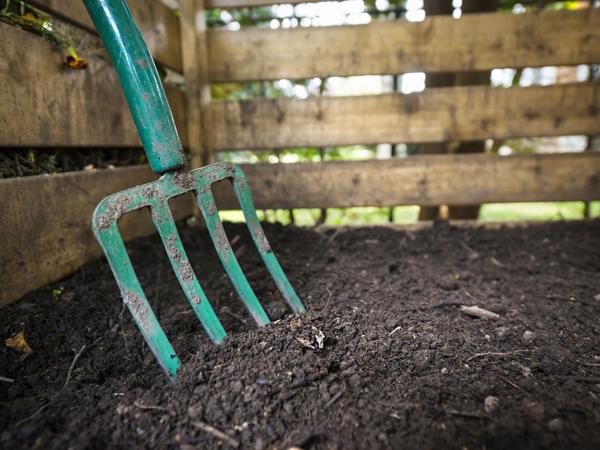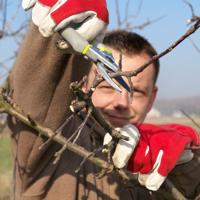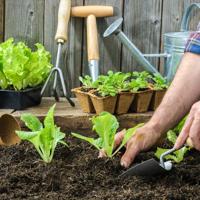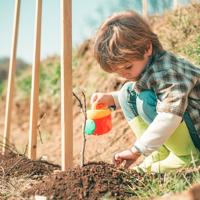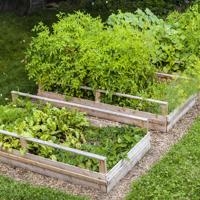There’s something satisfying about caring for your garden tools just as you care for your plants. Regular maintenance can extend their life and performance, ensuring they faithfully serve you season after season. Rust is the common nemesis of metal tools, but with some attention, it can be managed. Here’s a down-to-earth guide on how to prevent and remove rust from your tools.
Understanding Rust
Rust is the result of the oxidation process when iron or its alloys react with oxygen and moisture. It forms a reddish, flaky coating that can weaken tools and hinder their performance. This natural occurrence can be particularly frustrating since many garden tools are kept outdoors or in damp environments.
Prevention Measures
Taking preventative steps can significantly reduce rust formation on your tools:
1. Clean After Use
Wiping down your tools after each use removes dirt and moisture, which are contributors to rust. Use a dry cloth to clean the metal parts, and consider an occasional wash with soapy water for a thorough cleaning. Ensure tools are completely dry before storing.
2. Proper Storage
Storing tools in a dry environment is crucial. If possible, hang them on walls rather than letting them touch the ground in a shed or garage. A wooden toolbox is an old trick to help absorb any ambient moisture. Additionally, using silica gel packs can aid in moisture control.
3. Regularly Apply Oil
A light coat of oil, such as linseed oil or machine oil, forms a protective barrier against moisture. After cleaning and drying your tools, rub a bit of oil on the metal surfaces. This can help in keeping rust at bay.
4. Use Sand or Rice
An old gardener’s trick involves storing tools in a bucket of sand mixed with a cup of motor oil. The sand keeps the tools dry, while the oil provides a protective coating. Rice can also work similarly as a moisture absorber.
Rust Removal Techniques
Even with the best care, rust can occasionally form. Here’s how to tackle it:
1. Baking Soda Paste
Create a paste by mixing baking soda and water. Apply it to the rusty area and let it sit for an hour. Scrub with a wire brush or steel wool, rinse, and dry thoroughly.
2. Vinegar Soak
Soak tools in vinegar for a few hours or overnight for tougher rust. The acetic acid will break down rust. After soaking, scrub the rusty areas, rinse, and dry. Use caution, as prolonged exposure to vinegar can negatively affect some metals.
3. Lemon Juice and Salt
Salt enhances the rust-removing power of lemon juice. Coat the rust with salt, then squeeze lemon juice over it. Let it sit for a few hours. Scrub away the rust, rinse, and dry fully after.
4. Commercial Rust Removers
There are products specifically designed to remove rust. Always follow manufacturer instructions and choose biodegradable or environmentally friendly options if possible.
Maintenance Tips
Once you’ve rid your tools of rust, regular maintenance can keep them in prime condition:
- Sharpen Blades: Keeping blades sharp not only aids in effective gardening but reduces exposure to damp plant material.
- Inspect Joints: Regularly inspect moving parts like hinges to ensure they’re not gathering rust or debris.
- Re-apply Protective Coatings: Routinely reapply oil coatings, especially after rust removal procedures.
A Word on Sustainability
Caring for your tools not only enhances their lifespan but reflects a broader commitment to sustainability. Maintaining and repairing rather than replacing reduces waste and conserves resources. Every little effort counts towards a more sustainable lifestyle.
For more insights, experiences, and tips on living a sustainable garden-to-table lifestyle, continue exploring Bistro Garden.
Maintaining your tools might seem like a small task in the grand scheme of gardening, but it’s an integral part of a sustainable gardening routine. With these gentle practices, you can keep rust at bay and enjoy the rewarding experience of well-kept tools.
Remember, your tools are as integral to your gardening success as the soil and seed. Treat them well, and they will treat you well in return.
